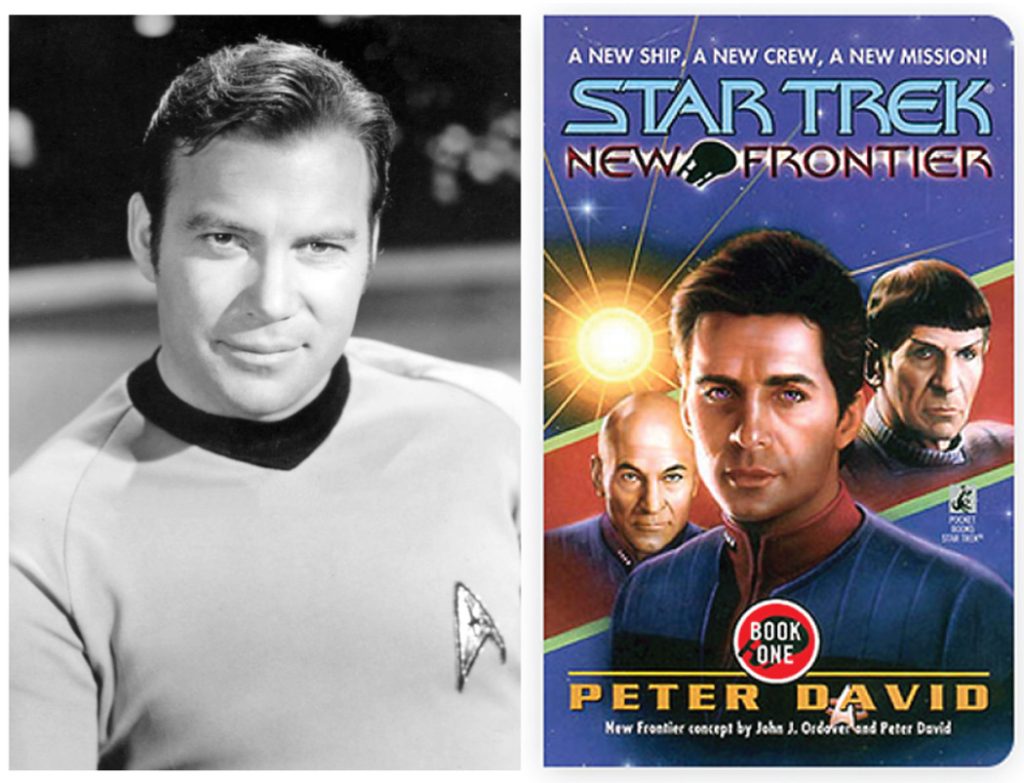
I am an inveterate Star Trek fan. Whether it’s the original series from the 1960s and its oft forgotten animated spin-off from the early 1970s, Star Trek: The Next Generation that ushered in the 1990s heyday, or the current live-action and animated variations, I’m delighted by all of it. The movies, too—whether they take place in the Prime or the Kelvin universe.
But when it comes to Star Trek in other media, I’m much more of a dabbler. As a youngster, I had a book and record set featuring Captain Kirk and company, although it was decidedly not voiced by the original cast. As a teenager, I read a couple of tie-in novels featuring the characters from the original show. Over the years, I’ve read a variety of Star Trek comic books and I own digital versions of many, many more. I had a Next Generation video game and the Trek-themed “How to Host a Mystery” game for which my friends and I dressed up in homemade costumes. The Next Generation pinball machine from Williams is one of my all-time favorite tables.
I also feel obligated to admit that I possess something of a Star Trek collection, mostly amassed in the 1990s,Tree that includes everything from action figures to trading cards to decorative plates.
That might sound like a lot of Star Trek-related media, but in the scheme of things, it really isn’t. For the most part, what has kept me from diving into Star Trek tie-ins has been the question of canonicity. That is: which events in the Star Trek universe actually happened?
And yes, I know, the simple, direct, and true answer is none of them.
But when you adopt an “in universe” point of view, what you accept as canon has an impact on how you understand the overall ethos of the stories. It also allows you to choose consistently among competing details if, for example, a character is said to be from one planet in a comic but is later said to be from another in an onscreen adventure.
My personal approach to Star Trek canon has always been this: If it happened in an official television show or movie, it is canon. If it didn’t, it isn’t.
I’m guessing at this point that some readers—even those who are usually patient with my asides and ramblings—have beamed right out of this column. But if you’re still with me, let me tell you about a tie-in adventure I’ve signed on for—at least for now—because it seems to sidestep questions about canon.
Star Trek: New Frontier—House of Cards by Peter David
The New Frontier idea was simple and compelling. The books in this series, launched in 1997, would follow a captain, crew, and ship that were separate from existing Star Trek content. These adventures might be contemporaneous with, say, Next Generation or Deep Space 9, but they would not necessarily impact the established stories of any core characters.
Of course, one look at the cover of the first book in the series, House of Cards, reveals that these stories are not wholly separate from the established Trek universe. There’s Captain Picard and Ambassador Spock to either side of New Frontier protagonist Captain Mackenzie Calhoun. So here at the start, at least, we’re going to spend some time with some known quantities.
I’ll admit I was worried about this, and sure enough, it doesn’t take author Peter David too long to remind me why I look askance at non-canonical Trek content. Early on, Captain Picard encounters the young man who will eventually become Captain Calhoun. He compares the two of them to Alexander the Great.
“For such people as he . . . and you . . . and me,” David has Picard say, “the prospect of no new worlds to conquer can end up being a devastating one.”
Listen, there is no way in any universe (except perhaps the Mirror Universe) that a canonical version of Captain Picard would speak of “new worlds to conquer.” Starfleet is decidedly not about conquest—and neither is Picard.
Still, I stuck with House of Cards because of the hope that the New Frontier series would feel like an additional 1990s-era Star Trek television show once we warp away from the most familiar characters and head out on . . . well . . . the new frontier.
Meanwhile, I’m trying to keep the words of Leonard Nimoy (the first actor to play Spock) firmly in mind: “Canon is only important to certain people because they have to cling to their knowledge of the minutiae. Open your mind! Be a Star Trek fan and open your mind and say, ‘Where does Star Trek want to take me now?’”
For the time being at least, the answer is back to the used bookstore in search of more New Frontier books.
